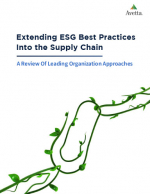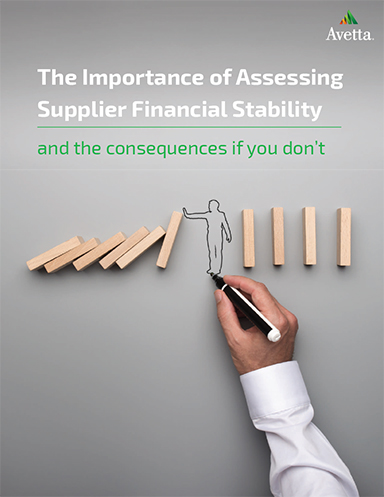The Importance of Assessing Supplier Financial Stability
Developing long-term, stable business partnerships depends on selecting financially viable suppliers, and entering blindly into a supplier relationship without evaluating existing suppliers’ financial health can expose a company to delays, damaged reputations, lost revenues, and wasted time.
Suppliers are the lifeblood of many organizations. Regardless of what they are providing – a product, a service, or a combination of the two – companies depend on contractors and suppliers fulfilling their contracts.
While the symbiotic relationship between companies and their suppliers drives operations, that mutual reliance also introduces business risk. In a MIT-PwC survey of 209 companies with a global footprint, more than 60% noted that disruptions within their supply chains had led to a 3% or more drop in the respondents’ financial performance.
By gathering and monitoring key financial information on suppliers and contractors such as revenue, financial references, continuity plans, and third-party ratings, organizations can minimize the risks introduced to the business when partnering with a third-party firm.
Why Assess Supplier Financial Stability
All business-supplier partnerships present risk. However, the level of that risk varies based on the services or goods being supplied. Some contractors and suppliers may be critical to your operations, while others play a smaller role and present less of a threat to business continuity.
The increased correlation between supply chains and performance indicators uncovered in the MITPwC survey doesn’t show signs of going away. Of the survey participants, 95% agreed or strongly agreed with the statement “dependencies between supply chain entities have increased.” Understanding where potential weaknesses or vulnerabilities lie, and being equipped to manage each of them, presents tangible benefits.
What’s Related




Favorites





